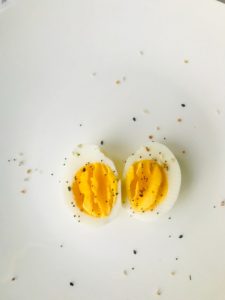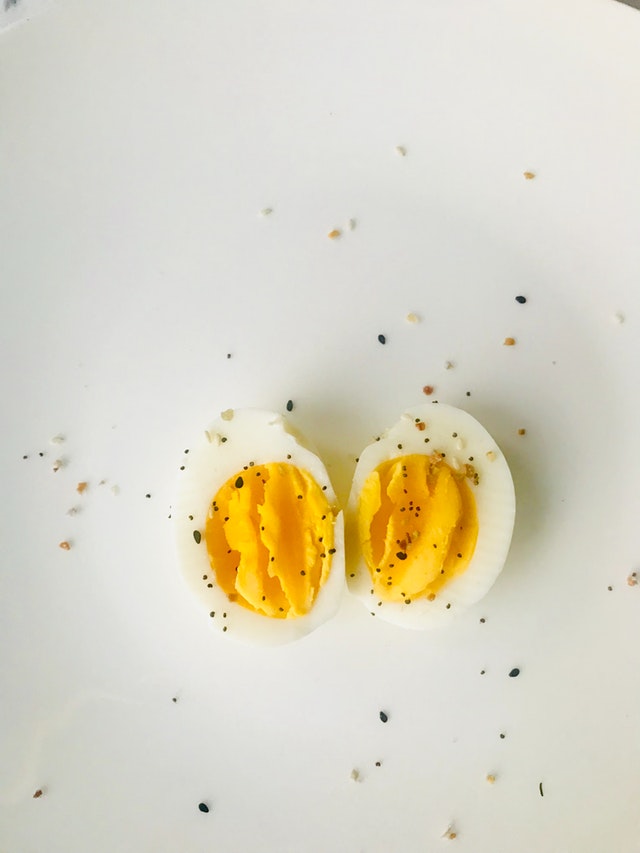In recent months the humble egg has taken a beating. In April, a study suggested that daily egg  consumption posed a heart health risk. A new study from Finland, published in the American Journal of Clinical Nutrition, counters this theory and shows that a moderately high intake of dietary cholesterol or consumption of up to one egg per day is not associated with an elevated risk of stroke. Furthermore, no association was found in carriers of the APOE4 phenotype, which affects cholesterol metabolism and is remarkably common among the Finnish population, as well as North America and Asia. Read more about the APOE4 phenotype here.
consumption posed a heart health risk. A new study from Finland, published in the American Journal of Clinical Nutrition, counters this theory and shows that a moderately high intake of dietary cholesterol or consumption of up to one egg per day is not associated with an elevated risk of stroke. Furthermore, no association was found in carriers of the APOE4 phenotype, which affects cholesterol metabolism and is remarkably common among the Finnish population, as well as North America and Asia. Read more about the APOE4 phenotype here.
Findings from earlier studies addressing the association of dietary cholesterol or egg intake with the risk of stroke have been contradictory. Some studies have found an association between high dietary cholesterol intake and an increased risk of stroke, while others have associated the consumption of eggs, which are high in cholesterol, with a reduced risk of stroke. Still other recent studies suggests that low LDL may contribute to stroke (read commentary on this from contributor, cardiologist, Elizabeth Klodas, MD).
For most people, dietary cholesterol plays a very small role in affecting their serum cholesterol levels. However, in carriers of the apolipoprotein E phenotype 4 – which significantly impacts cholesterol metabolism – the effect of dietary cholesterol on serum cholesterol levels is greater. In Finland, the prevalence of APOE4, which is a hereditary variant, is exceptionally high, with approximately one third of the population presenting as carriers. Yet, research data on the association between a high intake of dietary cholesterol and the risk of stroke in this population group has not been available until now.
The dietary habits of 1,950 men aged between 42 and 60 years with no baseline diagnosis of a cardiovascular disease were assessed at the onset the Kuopio Ischaemic Heart Disease Risk Factor Study, KIHD, in 1984-1989 at the University of Eastern Finland. APOE phenotype data were available for 1,015 of the men participating in the study. Of those, 32% were known carriers of APOE4.
During a follow-up of 21 years, 217 men were diagnosed with stroke. The study found that neither dietary cholesterol nor egg consumption was associated with the risk of stroke — not even in carriers of APOE4.
RESULTS / During the mean ± SD follow-up of 21.2 ± 7.2 y, there were 217 incidences of any stroke: 166 of ischemic stroke and 55 of hemorrhagic stroke.
- Comparing the highest egg intake quartile with the lowest, the multivariable-adjusted HRs were 0.81 for total stroke (95% CI: 0.54, 1.23; P-trend = 0.32), 0.84 for ischemic stroke (95% CI: 0.53, 1.34; P-trend = 0.44), and 0.75 for hemorrhagic stroke (95% CI: 0.32, 1.77; P-trend = 0.40).
- The respective HRs for the highest cholesterol intake quartile compared with the lowest were 0.86 (95% CI: 0.57, 1.32; P-trend = 0.42), 0.74 (95% CI: 0.46, 1.20; P-trend = 0.32), and 1.10 (95% CI: 0.45, 2.66; P-trend = 0.75).
- Diastolic blood pressure was 1.6 mm Hg (P-trend = 0.04) lower in the highest egg intake quartile compared with the lowest, but there were no associations with systolic blood pressure or with cholesterol intake. ApoE phenotype (32% had apoE4 phenotype) did not modify the associations.
The findings suggest that moderate cholesterol intake or daily egg consumption are not associated with the risk of stroke, even in persons who are genetically predisposed to a greater effect of dietary cholesterol on serum cholesterol levels. In the highest control group, the study participants had an average daily dietary cholesterol intake of 520 mg and they consumed an average of one egg per day, which means that the findings cannot be generalised beyond these levels. One egg contains approximately 200 mg of cholesterol.
In this study, about a fourth of the total dietary cholesterol consumed came from eggs. Furthermore, the generalisability of this study is also weakened by the fact that the study population did not have a pre-existing cardiovascular disease at baseline and the size of the study population was relatively small. Therefore, the findings of the study should be verified in a larger cohort as well as in people with a pre-existing cardiovascular disease, who are currently advised to limit their intake of cholesterol and eggs.
CONCLUSION / Neither egg nor cholesterol intakes were associated with stroke risk in this cohort, regardless of apoE phenotype.





